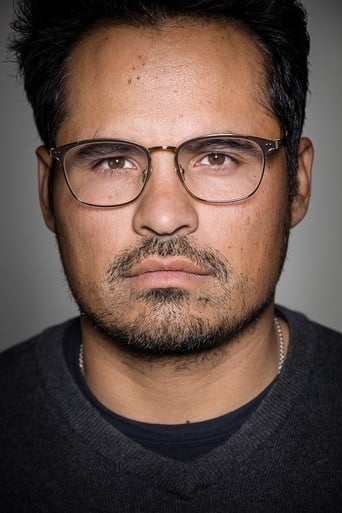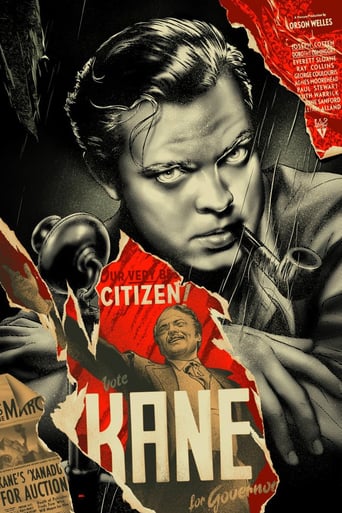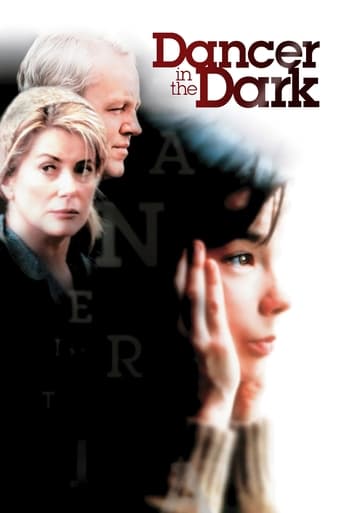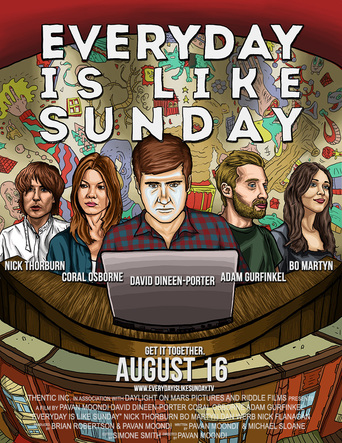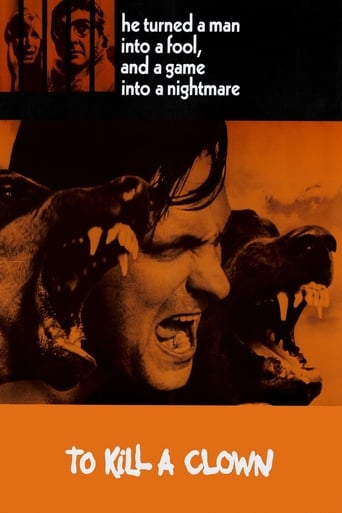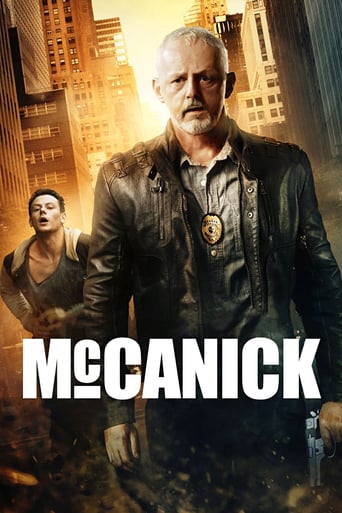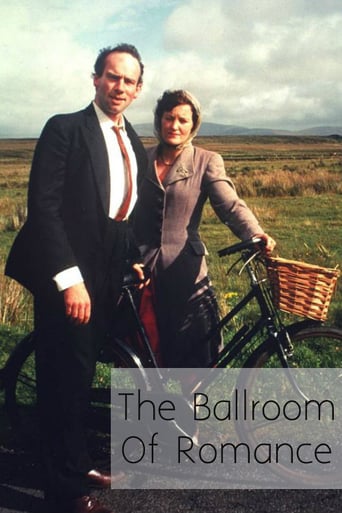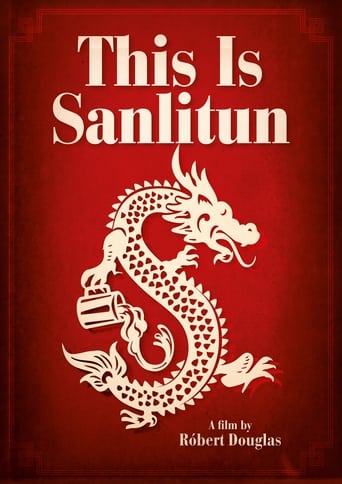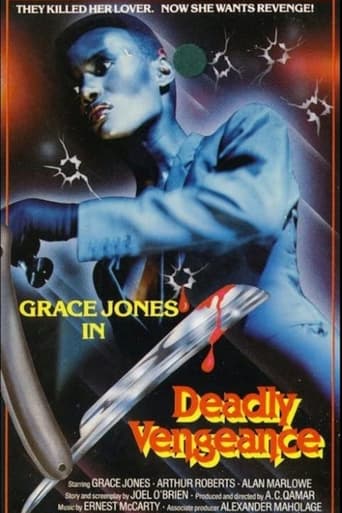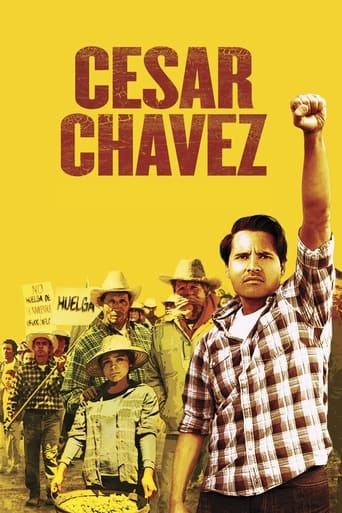
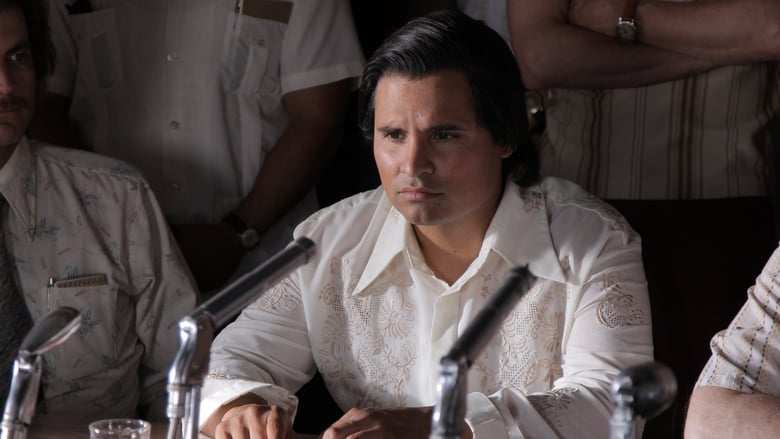
Cesar Chavez (2014)
A biography of the civil-rights activist and labor organizer Cesar Chavez. Chronicling the birth of a modern American labour movement, Cesar Chavez tells the story of the famed civil rights leader and labour organiser torn between his duties as a husband and father and his commitment to securing a living wage for farm workers. Passionate but soft-spoken, Chavez embraced non-violence as he battled greed and prejudice in his struggle to bring dignity to working people.
Watch Trailer
Cast


Similar titles
Reviews
This is the story of Cesar Chavez who took on the planters and growers in the southern US in order to end exploitation of immigrant workers. On his way he made a lot of sacrifices but so did his family – he had eight children and the film captures some of the familial strife that he underwent too.We also have the parts played by numerous politicians from Bobby Kennedy, Richard Nixon and Ronald 'I don't use hair dye' Regan. This could be called one sided in that it is pretty black and white in its approach, however it has a genuine feel of authenticity and seems to match what I could find out about the man. That is the factual stuff; the emotional is obviously part poetic invention. Starring Michael Pena ('End of Watch' and 'Fury') who puts in a solid performance and with able support from, amongst others, John Malkovich. This is a film that does not require very much analysis and you can just kick back and enjoy it. The real strength here is the message of unity and education and how that can make a change for the better. I for one really enjoyed it and irrespective of your political hue there will be something here for most people.
Admittedly, though the name of Cesar Chavez was certainly familiar, was drew me to watching this was mostly Rosario Dawson and America Ferrera who, outside of the occasional appearance on The Good Wife, I haven't seen much of since Ugly Betty was canceled/ ended. But it should be noted that while they are participants in the film, the star is Michael Pena who plays Cesar Chavez.Characters & StoryCesar Chavez (Michael Pena) is a man born in Arizona to a family which formerly owned a farm, but when the depression hit his family lost their farm in pursuit of jobs they assumed would be in California. Unfortunately, they weren't the only ones with hopes to find work, so they were left with a bit of dashed hopes, but a spirit which remained unbroken. Something which would help Chavez in his later years.Which leads to the heart of the story which deals with Chavez's rise as a civil rights leader, with assistance from his wife Helen Chavez (America Ferrera) and, the woman who is noted as co-founder, Dolores Huerta (Rosario Dawson). The three combined try to organize farmers who are paid, at most, $2 a day while the farm owners, of which a prominent one is played by John Malkovich, rather try to seek undocumented immigrants or export to Europe in order to bypass coming to a negotiation table.However, even with the farm owners, President Nixon, Governor Reagan, and the death of Robert Kennedy working against Chavez and the United Farm Workers, one major battle in the war for justice was accomplished.PraiseIn what you could take as a backhanded compliment, I felt Cesar Chavez more so aimed to educate, or provide an overview, of Cesar Chavez's work than present this as an entertaining biopic which wanted the type of performances which elicited accolades. I say this because everyone comes off sort of dry, and no one really seeks to standout in their performances. Even Pena, as Chavez, feels very toned down to the point I'm not sure if I'm just used to grandeur, charismatic performances, or if Chavez and his team were just not as lively as most figures we get to meet through film. I will say though, I quite liked the use of interlacing archival footage with the story giving it the type of feel which made it feel like you were more so in the moment than watching a film.CriticismWith that said though, at a little under two hours, I must admit the film really does feel like something you'd watch in school and would fall asleep on. I would probably account this to the fact it really doesn't pull much out in terms of bells and whistles. I mean, yes it shows the brutality of the farm workers daring to stand up to almost plantation styled farm owners, but outside of those scenes where the farmers, including Chavez, and the owners are showing their passion for or against the cause, it is quite boring. Also, Pena to me may play the role well, but being that he is the focal point of the movie, it is hard to say he is as enrapturing as Idris Elba was in Mandela: Long Walk to Freedom, if you want to compare one civil rights leader biopic to another.Then, what makes things worse, is if you do a bit of research on the film, you start to wonder why Dolores, pretty much isn't allowed to really get into the action. I mean, maybe researching her and Chavez's life may show that she may have been more behind the scenes, but something about the way she was first presented in the film makes it seem like they downplayed her role, as well as Helen's, in the film. And considering they did show Chavez as a bit of a machismo at times, perhaps this was meant to be symbolism?Overall: TV ViewingLike with Mandela: Long Walk to Freedom, the movie is good in terms of giving you a basic overview, or rather introduction, so you can hopefully be intrigued enough to do your own research, but entertainment wise it doesn't have a high value. Pena, be it because of how Chavez was as a person or just how he wanted to portray Chavez, doesn't call for your attention, and no one really does. The acts of violence and the struggle are what keep your eyes glued to the screen, and naturally these moments are only meant to show the peaks of when the movement was making progress. However, before and after those moments are a rather drag to sit through, so at best I can say this is worth TV viewing.
Firstly, I disagree with the external critic reviews that bring the overall rating of the film down very much. Unfortunately, these are the criticisms that will keep Hollywood from investing in future endeavors that symbolize the Latino/Social Justice/Consciousness-Inducing narratives that the public desperately needs. I work in the immigrant social justice movement and I work closely with a lot of farm worker justice orgs, including Chavez's UFW. I understand that there are contexts missing and that there were a lot of things at stake during that particular movement, but I'm more aware of the fact that it would be hard for the general public and the folks that really need to go and watch this film to understand the greater context and be moved by the politics that plagued the social advocates and continue to plague our movement today. I also took my Spanish-speaking, first generation immigrant family to watch this film. They are not involved in any of my work but some of them have worked on the fields as guest workers, etc. I was glad to see that they were moved and even brought to tears by the simplicity of the film and that they appreciated that someone was acknowledging their struggle. At the end of the day, the film was entertaining, well acted, and it served its purpose to educate and inspire people like my family.
The movie in its way distorts the Cesar's Chavez and his impacts. No doubt Chavez was a charismatic figure and because of that Big Labor used him to create the UFW. Chavez was Labor's puppet. He did what they wanted him to do. He was non-violent because Labor did not want violence. To Big Labor violence was something that belonged to the commies and Labor didn't want violence to characterize their efforts to create another cash cow in a farm workers union. So Labor manipulated Chavez and because he saw the benefits of being Labor's stooge, he went along with it. Not that he didn't also believe that it would benefit his beloved farm workers too. Without the backing of big labor, Chavez would have gone nowhere. He was poorly educated, almost an illiterate itinerant. But to his credit he listened to Big Labor and he succeeded. It was Big Labor that had the power in Sacramento and with the government, not Chavez. However, Chavez's claims of success are somewhat dimmed by the fact that while it successfully with the help of Big Labor did get some reforms enacted into law, members of the UFW get socked for dues that support well paid union executives that have in the end delivered little for the workers. And many farm workers still don't belong to the UFW which they do not see any reason to belong to.Unfortunately, the movie is very selective in what it portrays of Chavez so as not to diminish his image. Hopefully someday someone will write the true story of Chavez and bring it to the screen so the public can form its own judgment concerning his importance to Latinos.


